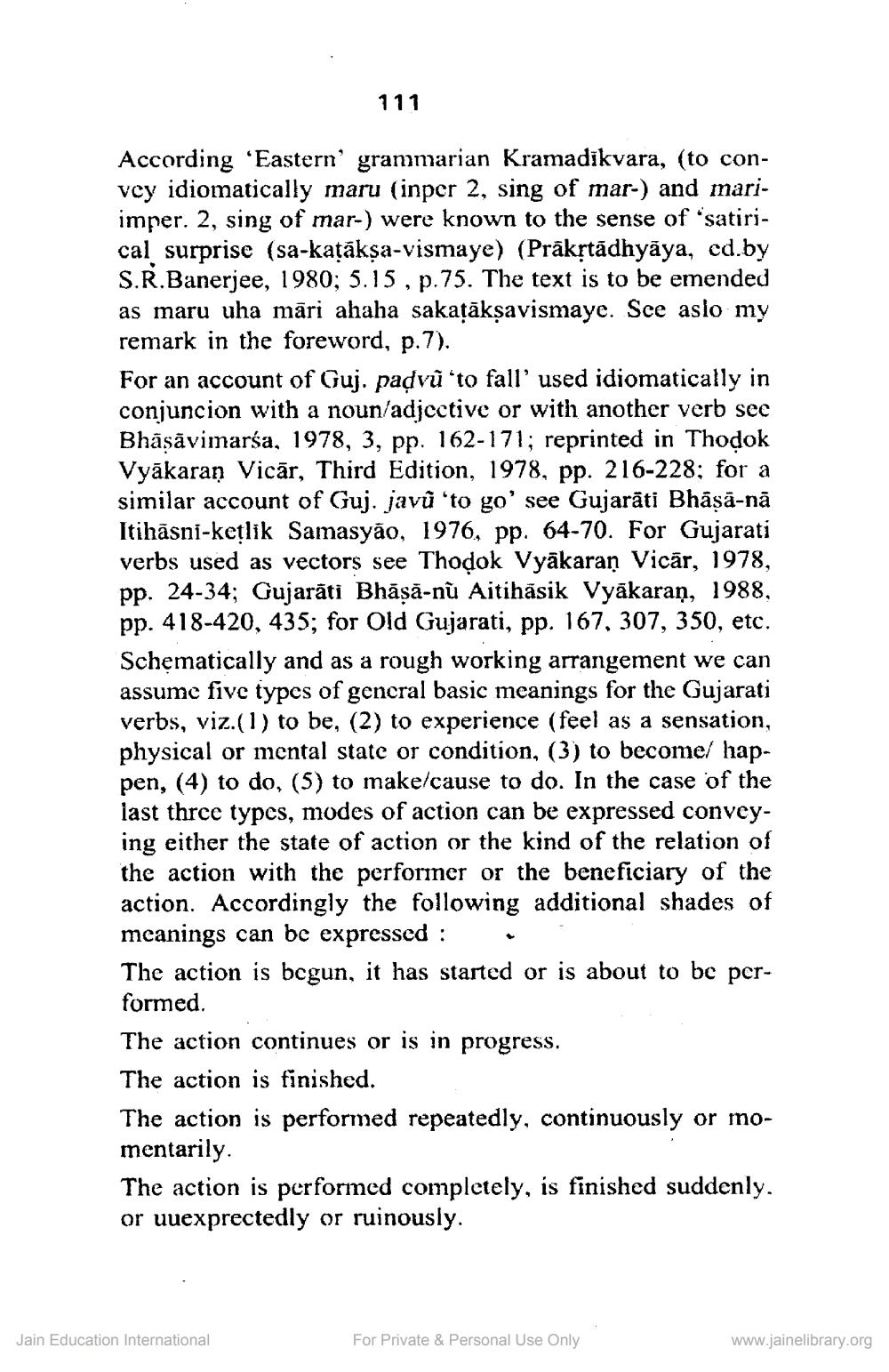________________
111
According 'Eastern' grammarian Kramadikvara, (to convey idiomatically maru (inper 2, sing of mar-) and mariimper. 2, sing of mar-) were known to the sense of satirical surprise (sa-kațākşa-vismaye) (Prākṣtādhyāya, cd.by S.R.Banerjee, 1980; 5.15, p. 75. The text is to be emended as maru uha māri ahaha sakațākşavismaye. Sce aslo my remark in the foreword, p.7). For an account of Guj. padvú to fall' used idiomatically in conjuncion with a noun/adjective or with another verb see Bhāṣāvimarśa, 1978, 3, pp. 162-171; reprinted in Thodok Vyākaran Vicār, Third Edition, 1978, pp. 216-228; for a similar account of Guj. javũ 'to go' see Gujarati Bhāṣā-nā Itihāsni-ketlik Samasyão, 1976, pp. 64-70. For Gujarati verbs used as vectors see Thodok Vyakaran Vicār, 1978, pp. 24-34; Gujarāti Bhāṣā-nù Aitihasik Vyākaran, 1988, pp. 418-420, 435; for Old Gujarati, pp. 167, 307, 350, etc. Schematically and as a rough working arrangement we can assume five types of general basic meanings for the Gujarati verbs, viz.(1) to be, (2) to experience (feel as a sensation, physical or mental state or condition, (3) to become/ happen, (4) to do, (5) to make/cause to do. In the case of the last three types, modes of action can be expressed conveying either the state of action or the kind of the relation of the action with the perforiner or the beneficiary of the action. Accordingly the following additional shades of mcanings can be expressed : The action is bcgun, it has started or is about to be performed. The action continues or is in progress. The action is finished. The action is performed repeatedly, continuously or momentarily. The action is performed completely, is finished suddenly. or uuexprectedly or ruinously.
Jain Education International
For Private & Personal Use Only
www.jainelibrary.org




